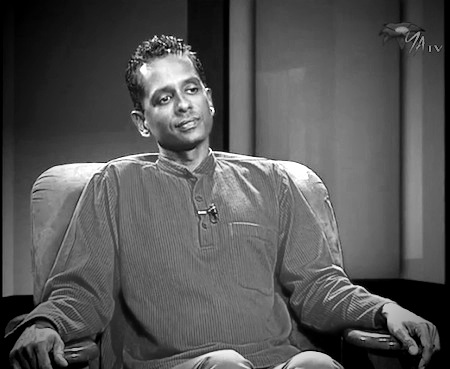Shyam Selvadurai was born in 1965. His book Funny Boy introduced gay fiction to mainstream English literature in Sri Lanka, and indeed as Shyam notes, in South Asia. Born to a Sinhalese mother and Tamil father, Shyam was 19 when he left Sri Lanka in 1983 for Canada. Funny Boy was as much about class and ethnicity as sexual identities, and though Shyam has repeatedly noted that it was not autobiographical, the fiction is set against a violent Sri Lanka.
Shyam is presently the curator of the Galle Literary Festival. In an essay (Coming Out) penned for Time in 2003, Shyam brought out the vexed relationship he has with Sri Lanka. On the one hand is the love for the country, “…live and let live generosity and good humour that I love most about Sri Lanka” and on the other, the unsettling nature of it “in this country that I still considered my home, I could never be at home.” Yet all of Shyam’s fiction is set in Sri Lanka, the reason for which I asked him in this interview.
The interview starts, as with so many others he has done, with Funny Boy and in 2011, Shyam’s take on his writing way back in the early 90’s. I ask him whether he is frustrated by being pegged so much to Funny Boy, given that he has come out with two other books, and is working on the release of a third this year. I asked him whether and how his exile from Sri Lanka helped in his fiction, and in his words, anchor his books to “a voice that is deeply Sri Lankan”. We explore the concept of home, and what it means to Shyam and also how his fiction often deals with the minutiae of life amongst certain classes, including unseen but appreciated acts of courage and kindness amidst hate and harm. I ask him about the process of writing and of literary prizes, and we both refer to the excellent essay Eyes on the Prize by Booker Prize winning Hillary Mantel, published in the Winter 2010 edition of Intelligent Life.
We end the interview on his curation of the Galle Literary Festival and his take on it, including the introduction of new events, better outreach and new voices reflecting Tamil and Sinhala literature. I ask him about the usual criticisms of the Festival – ranging from elitism to inauthenticity – and how he has, if at all, addressed these concerns, or feels the need to in the first place. I ask him what to him would be a measure of success for his first GLF as a curator, though he has appeared before as an author. Going deeper into the politics of language in Sri Lanka, and of the English language in particular, we end on an interesting note, where Shyam refers to English as the language of peace.


